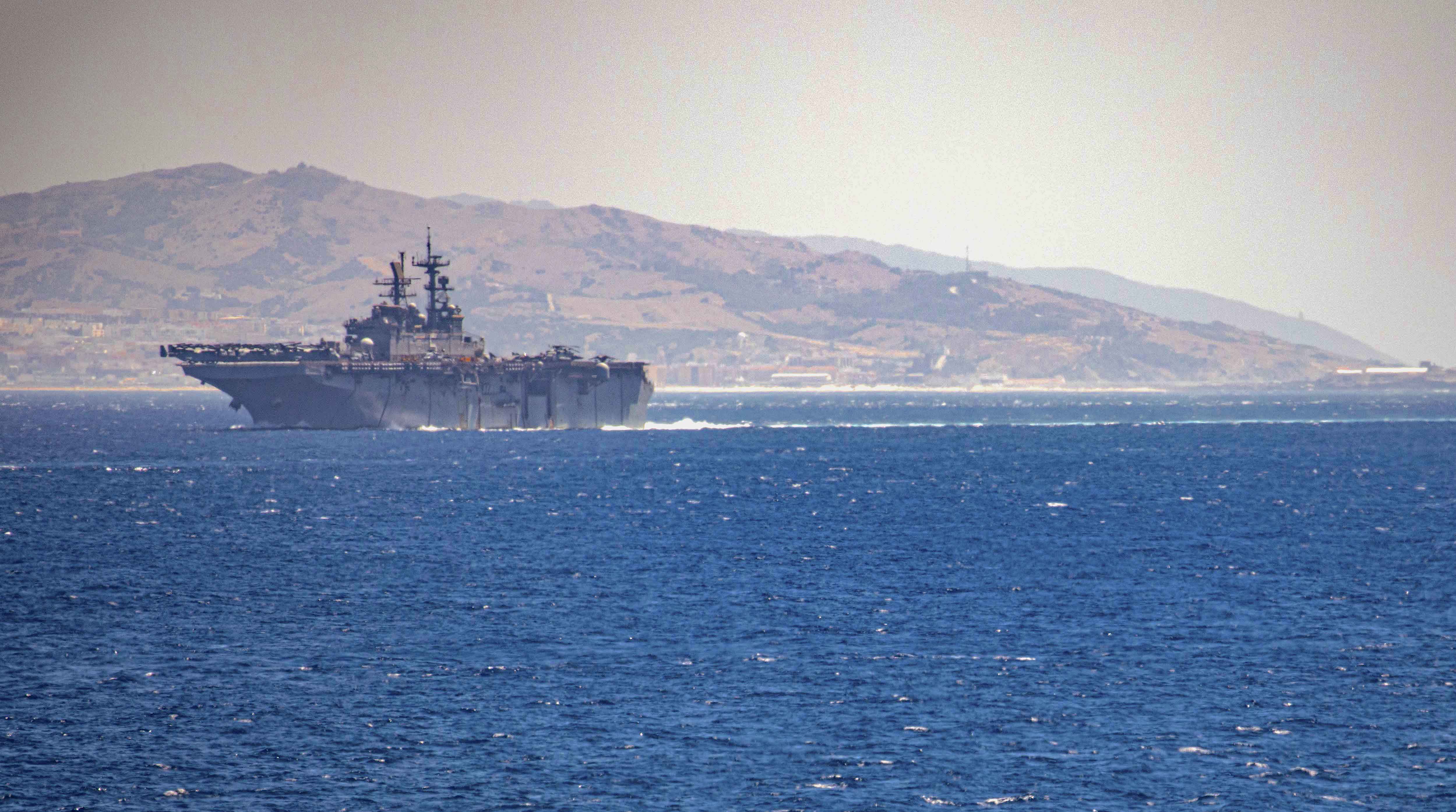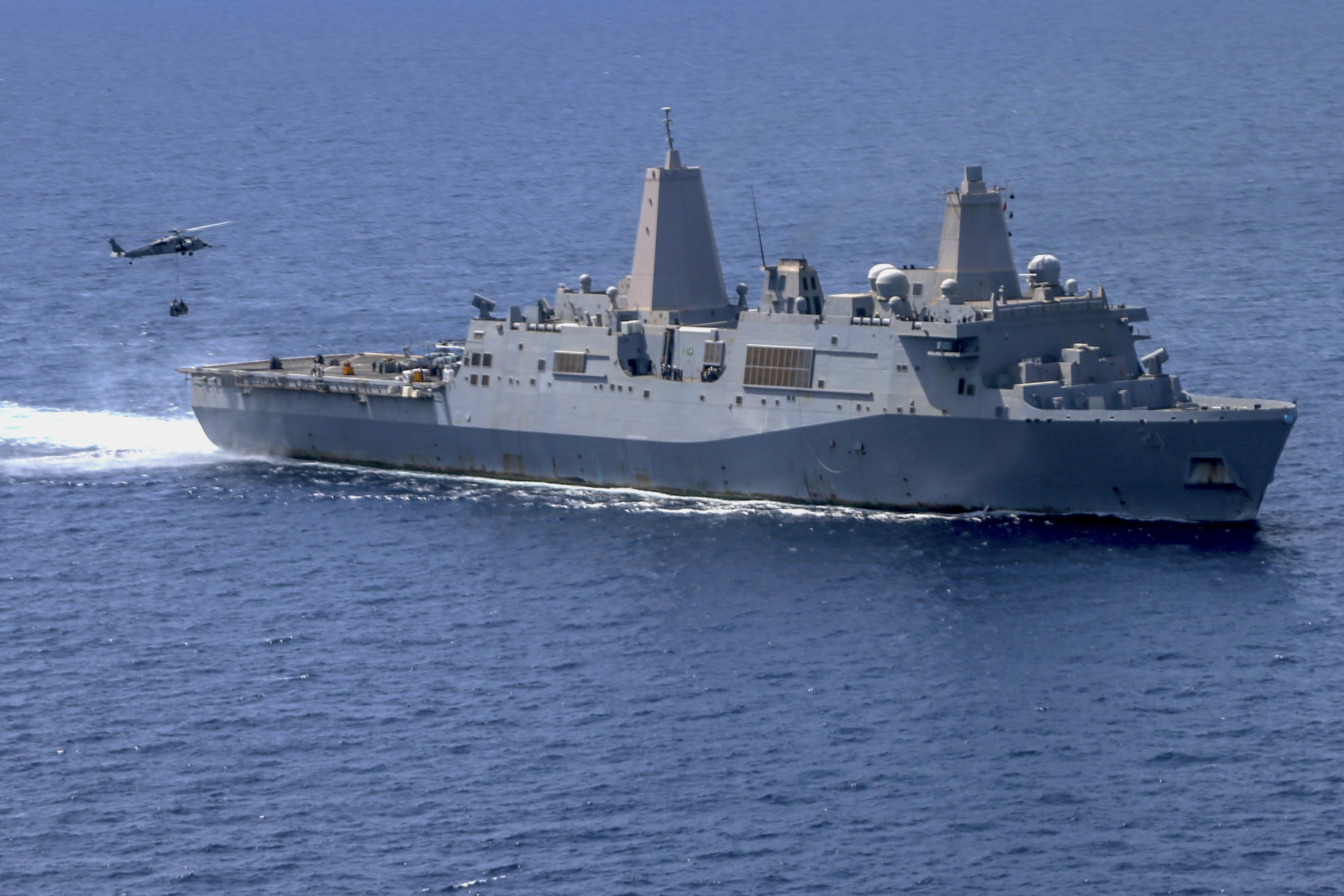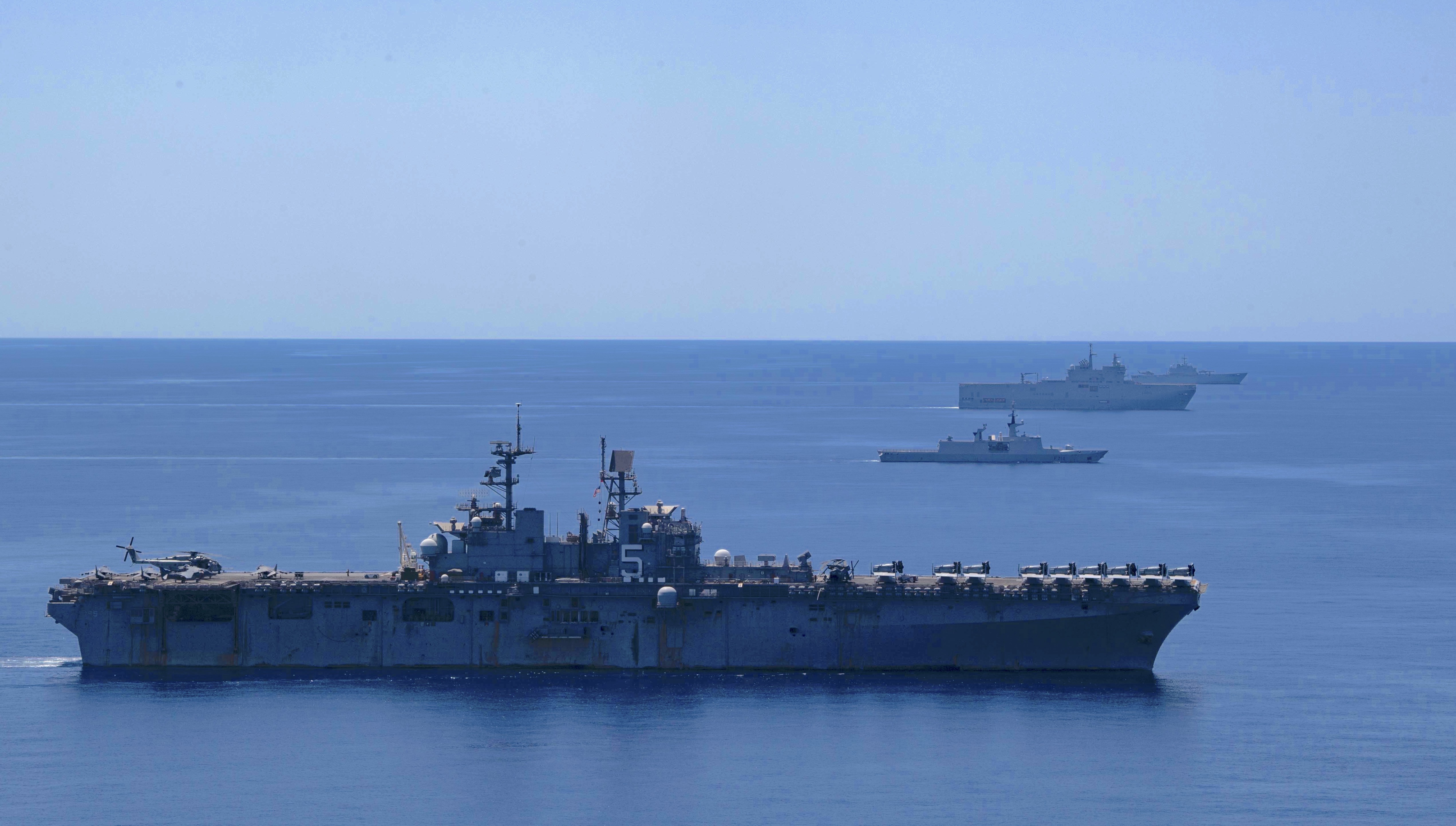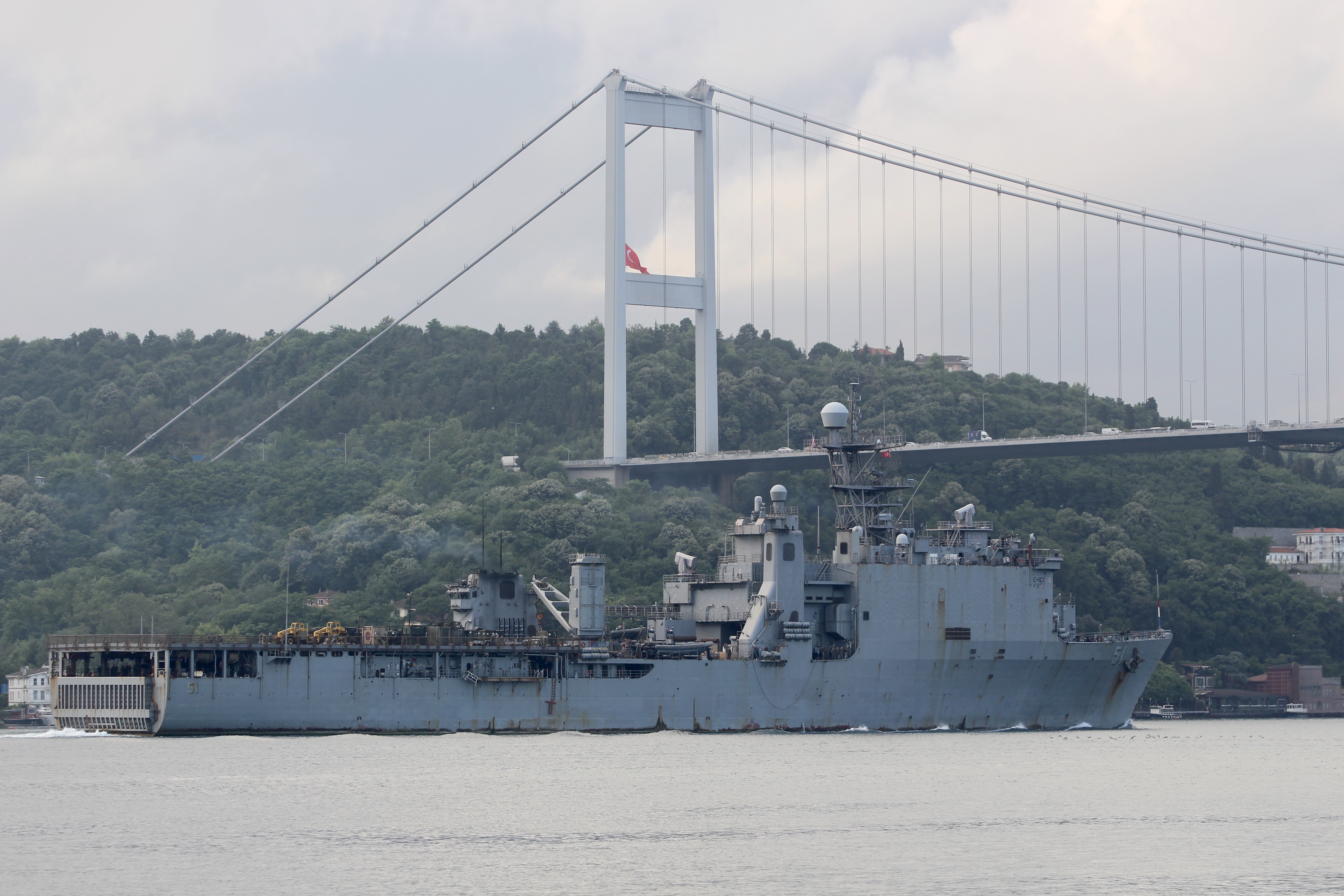
The more than 4,000 sailors and Marines of the Bataan Amphibious Ready Group and the 26th Marine Expeditionary Unit wrapped up a seven-month deployment to Europe and the Middle East, the Navy and Marines announced this week.
The 26th MEU returned to Camp Lejeune, N.C., over the weekend, offloading from USS Bataan (LHD-5), USS Oak Hill (LSD-51) and USS New York (LPD-21) after spending more than 150 consecutive days at sea.
“The 26th MEU was flexible, resilient and adaptable while forward deployed to the U.S. 5th Fleet and 6th Fleet areas of operation,” Col. Trevor Hall, commanding officer of 26th MEU, said in a news release.
“This deployment presented unique challenges, but the Navy-Marine Corps team prevailed and incessantly provided our fleet commanders with a responsive, sea-based Marine Air-Ground Task Force (MAGTF) – even during the global novel coronavirus (COVID-19) pandemic.”
The MEU is made up of Battalion Landing Team 2/8, Combat Logistics Battalion 26 and Marine Medium Tiltrotor Squadron (VMM) 365 (reinforced) based out of Camp Lejeune.
Dock landing ship Oak Hill returned to Joint Expeditionary Base Little Creek in Virginia Beach on Wednesday, according to a release from U.S. 2nd Fleet. Amphibious assault ship Bataan and amphibious transport dock New York are set to arrive at Naval Station Norfolk, Va., later this week.

“The crews onboard USS Bataan, USS New York and USS Oak Hill should feel great satisfaction and fulfillment knowing that, during this deployment, they played a crucial role as part of a premier crisis response team across the U.S. 2nd Fleet, 5th Fleet and 6th Fleet,” Capt. Lance Lesher, who served as commander of Amphibious Squadron (PHIBRON) 8 until July 12, said in a Wednesday statement.
The ARG/MEU was the first to deploy after Commandant of the Marine Corps released his Commandant’s Planning Guidance a year ago, calling for closer naval integration between the Navy and Marine Corps and more emphasis on tough littoral fights rather than air strikes and ground wars in the Middle East.

“As a naval force, we have a share in this. Naval warfare is brutal, as we have seen in the past, which we may not be as accustomed to it in recent times,” Hall told USNI News in October.
While the ARG/MEU had planned to exercise outside of the Middle East in line with the CPG, plans to train with Moroccan forces were scrapped early in the deployment and the ARG/MEU accelerated a move to U.S. 5th Fleet as tensions between Iran and the U.S. grew after the killing of Iranian Quds Force commander Qasem Soleimani and Tehran’s retaliation of firing short-range ballistic missiles at U.S. forces in the region.
The Bataan ARG operated out of 5th Fleet for the majority of its deployment and operated with regional allies.
“[The ARG/MEU] team worked with partners from the Kingdom of Saudi Arabia to coordinate multiple complex training evolutions on the uninhabited Karan and Kurayn islands in the Arabian Gulf, as well as with partners from the United Arab Emirates to hold training in an isolated location within that country,” reads a statement from 2nd Fleet.

In Europe, “the ARG-MEU increased interoperability with regional allies and partners by conducting maneuvering operations and at-sea exercises with navy and coast guard ships from Bulgaria, Bulgaria, Georgia, Romania and Turkey in the Black Sea. The crew additionally worked with allied ships from France and Italy during their time in the Mediterranean Sea,” reads the statement.
The ARG/MEU also trained with the Jordanian and Kuwaiti navies as part of the deployment. Ahead of the deployment, elements of the Bataan ARG were called in to assist in the aftermath of Hurricane Dorian in the Bahamas.





